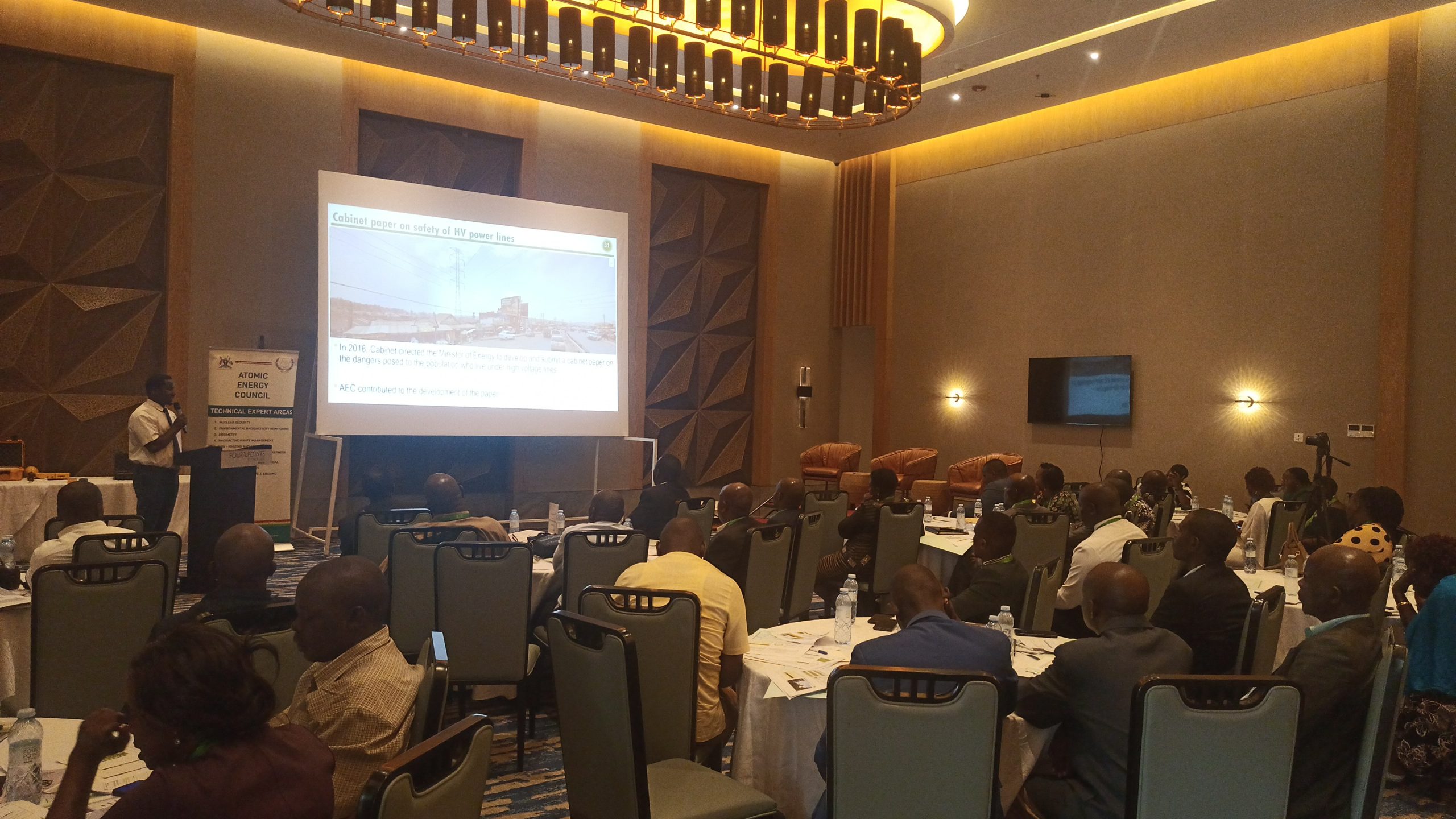News
AEC Council Engages Local Government Leaders On Nuclear Technology
Bakaluba Mukasa, the district chairperson for Mukono district, welcomed the Atomic Energy Council’s gesture of involving district leaders in understanding the atomic energy concept

By IvanKaahwaReports
The Atomic Energy Council has interacted with Local Government Leaders on the peaceful application of nuclear technology in their areas of operation. These leaders were informed about the safety and security of using nuclear energy, including the resolution by world powers to use nuclear power for peaceful purposes after World War II and the bombing of Hiroshima and Nagasaki in Japan. The CEO of the Atomic Energy Council Noah Deogratias Luwalira, highlighted the initiation of the Non-Proliferation Treaty, signed in 1957, to oversee the peaceful application of nuclear technology. This treaty was enforced in 1970. He stated that Uganda became a party to the treaty in 1982 and a member of the International Atomic Energy Agency (IAEA) in 1967. The IAEA, established in 1957, is responsible for overseeing the peaceful application of nuclear technology and requires all member states, including Uganda, to have legal and regulatory frameworks for the peaceful application of nuclear technology.
Bakaluba Mukasa, the district chairperson for Mukono District, welcomed the Atomic Energy Council’s gesture of involving district leaders in understanding the atomic energy concept, which is not widely understood by the public. He mentioned that the presence of the Atomic Energy Council’s nuclear and atomic waste storage facility in Kituba – Mpoma Nama Subcounty, Mukono District, was viewed by the community as an explosive manufacturing facility due to its high security protocols. This raised suspicion and psychological fears, leading the public to oppose the setup of the facility, highlighting their concerns about its proximity to the community. From the engagement, Bakaluba emphasized that he will work closely with the Atomic Energy Council officials to sensitize the communities on the importance of the facility in ensuring nuclear safety, security, and application. The facility in Mpoma Nama is one where disused radioactive waste sources are kept; these sources may no longer be in use or are obsolete. Therefore, Mpoma is one such facility where such sources are temporarily stored pending transportation to the country of origin.
The Atomic Energy Council issues permits on the condition that after the use of a radioactive source, it will be taken back by the licensed entity. However, if the user doesn’t have an adequate facility to keep the sources, the Atomic Energy Council temporarily stores them as a regulatory body while making plans to return them to the country of origin. Deogratias Luwalira further cited St. Mary’s Lacor and the Uganda Cancer Institute, which have disused sources used to treat cancer that they intend to return to the country of origin for disposal.
The Atomic Energy Council frequently conducts engagements as part of efforts to popularize nuclear applications, influence policy, laws, and raise awareness. The Atomic Energy Council has had engagements with health experts who use radioactive sources, such as cobalt machines for cancer screening and other ailments, to ensure they are used properly to avoid health implications. Others engaged include security agencies charged with protecting the sources from theft, illegal transport, and storage. District leaders, CAOs, MPs, and journalists have also benefited from these engagements as key stakeholders in the ecosystem of nuclear energy applications.




































